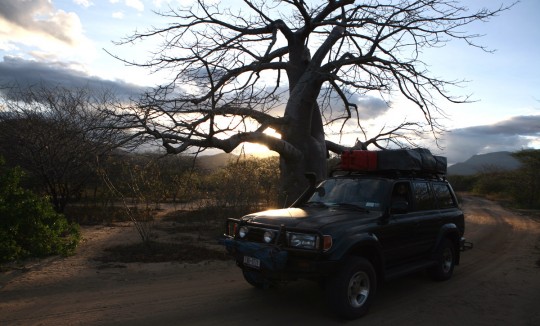
Every day in Malawi, I drive few hundred kilometers north and follow the lake. The progress is slow, due to the frequent police checkpoints and a multitude of villages where it is more prudent to slow down to 25 mph (40 km/h). Roads are not wide, and marketplaces bring many people on the tar.
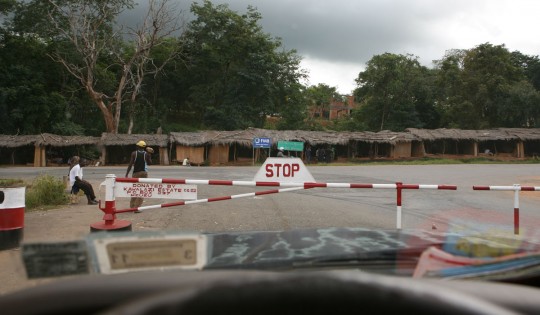
The police usually demand few documents, which I all have thanks to the dead time I had in Durban and some work in Photoshop. They sometimes make an attempt to say I was speeding, but usually don’t insist when I deny it.
In the afternoons, I stop in camp grounds easy to find on the shore of the Lake. It costs around US$ 4 a night, which is a good value compared to the cost in South Africa and Mozambique. There I spend time planning the following days, and list accommodations on the map.
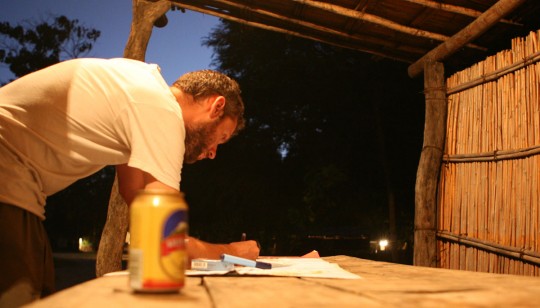
I spend nights in Kande Beach and Chiweta. Some camps are pretty basic, while other offer electricity and hot water. Internet is not available, unless you are willing to spend a lot of money to get satellite access. I cook every night using the food I got in Blantyre. It is difficult to get more than very basic items in the few shops along the road. Cooking for myself ensure that I get a balanced and healthy diet. I boil the water I use to cook, and put bleach in my non-drinking water to wash vegetables or brush my teeth.
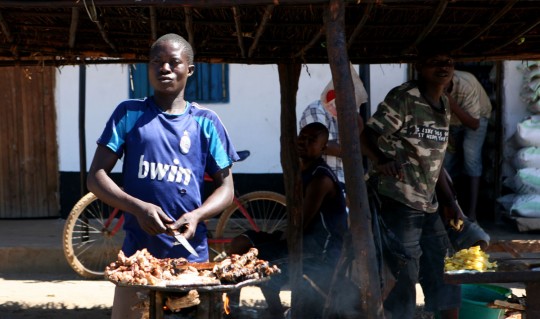
The roads are in good conditions and it is a nice change from Mozambique. Gas is expensive though and I will have to wait for the Middle East to get more reasonable prices. It is now my biggest daily expense. Unfortunately, I have rare exchanges with people. It is very difficult to have a normal conversation, as locals usually want to sell you something, and the cultural divide is huge. I believe many months in Africa would be necessary to be able to gain from exchanges with people. Don’t take me wrong, everybody is nice, and curious about the place I come, why I am doing this trip and they all want to know the price of diverse items in the U.S. They also always want to exchange mail addresses. Maybe I will one day receive some news…
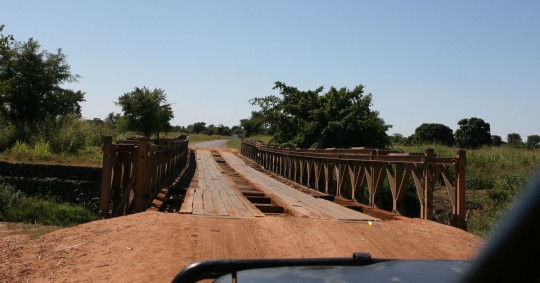
As I advance north, there is a more mountainous landscape, and some forests. I recognize rubber trees which inhabitants milk after cutting the skin of their trunks.
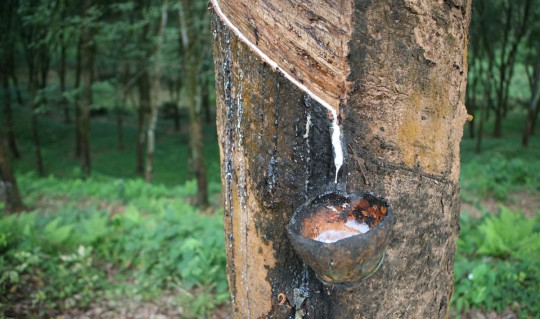
The landscape is indeed more interesting up there, and I get better nights of sleep as the temperature is lower during the night. As I know I will spend some time in higher altitudes, I take some time to change my rear brake pads, which I bought back in Texas. I doubt I would have been able to find parts in this part of Africa, as I don’t see many Land Cruisers on the roads. As in South Africa, there are many used vehicles coming from Japan, and also the group Tata seems pretty successful with their trucks.
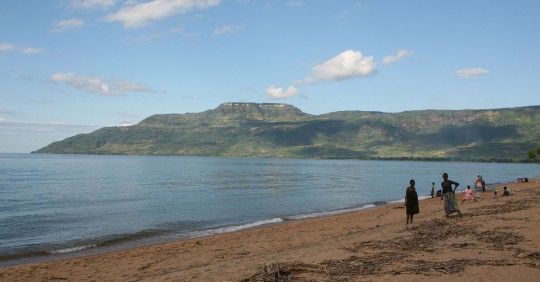
Very few individual vehicles are in fact seen on the road, mostly buses and trucks. People here use bicycles as the main transportation mode, very often just pushing a bike loaded with goods.
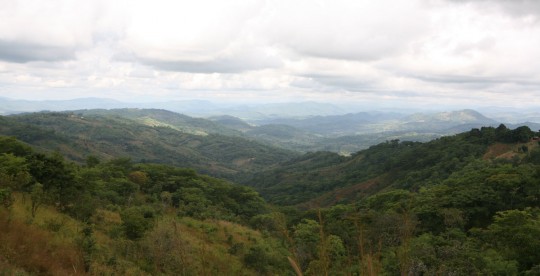
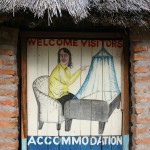
The last campground I stay at has no showers, no electricity and fence, which makes me wonder why I just don’t sleep on the border of the road (Where it is located as well…). It is time for me to go to the next country. Tanzania.
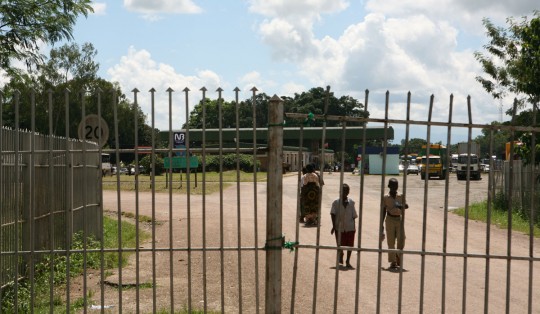
When I get to the border, it is a little bit trickier than previous crossings. In fact, it’s just a question of money. The Tanzanian authorities want some cash. At first, they ask me US$50 for a visa. I find it too expensive, and I wonder if it is a scam. I can’t remember how much it is supposed to cost. So I tell them it is too expensive, and have to sit down with the chief who finally agree to bring down the cost to US$30. Later, when I look into my notes, I figure the visa is indeed supposed to cost $50. In addition, they want me to pay US$25 for road tax. I don’t have enough US dollars easily accessible, so they agree to let me pay US$5 for a week worth of the tax. I can later go in a city to pay more to extend. Or not.
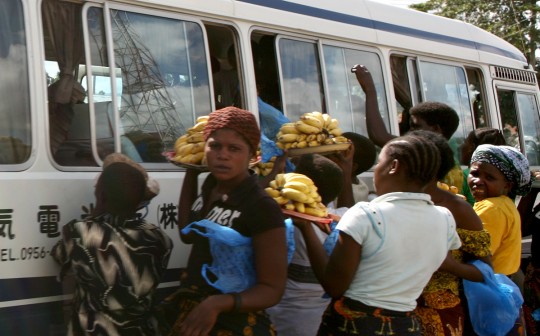
Once again, I have no currencies for this new country, and almost no gas left. In the first town I stop, I can’t get cash at the ATM. I have to try to get to Mbeya with the fuel I have left. And I reach the city, probably running on gas vapors. There I am able to get cash, fill up the tank and an additional jerry can I usually keep with me full at all time. It cost me almost 200,000 Tanzanian Shillings. Sounds expensive…
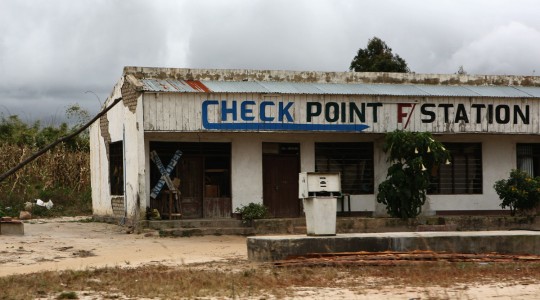
Later on, I get to a church-run center where they let me camp for a dime. The following day, I will take the direction of Dar Es Salaam on the long northeastern road through the low mountains.
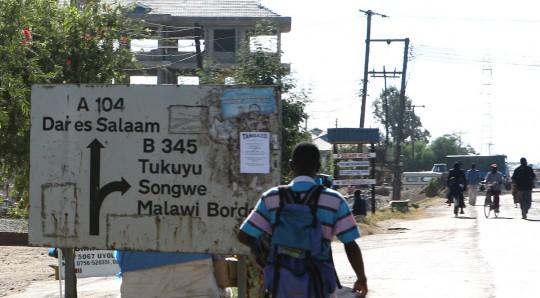
I leave in the morning and begin my trip through the wonderful landscape. I changed time already, and I am now at GMT +3. I have tons of things to do in the large city, mostly visas, and I hope everything will go well. As I am driving, I try to remember everything I need to get done. This does include stopping at the French embassy for my passport problem, get the Ethiopian visa, which I can’t get at the border as I usually do, and also spend some time on internet, so I could reply emails and update my blog.
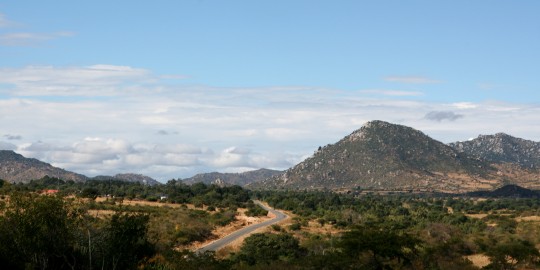
The trip to the city should take me two days at least. The road is sinuous, and there are an impressive number of accidents. I pay extra attention and prefer to go slow than to finish down the mountain.
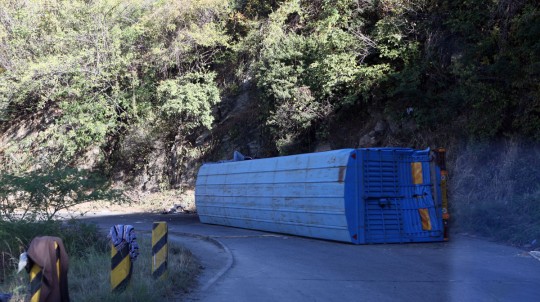
At the end of the day, I stop close to Mikumi, in a campsite surrounded by baobabs. I am the only visitor there, and decide to use the restaurant of the camp. After all, I don’t have anymore food left, and definitely deserve a nice meal. In the morning, I decide to stay an extra day to wash some clothe and prepare my visit to Dar Es Salaam.
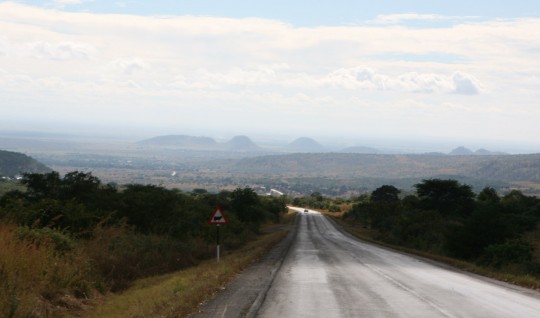
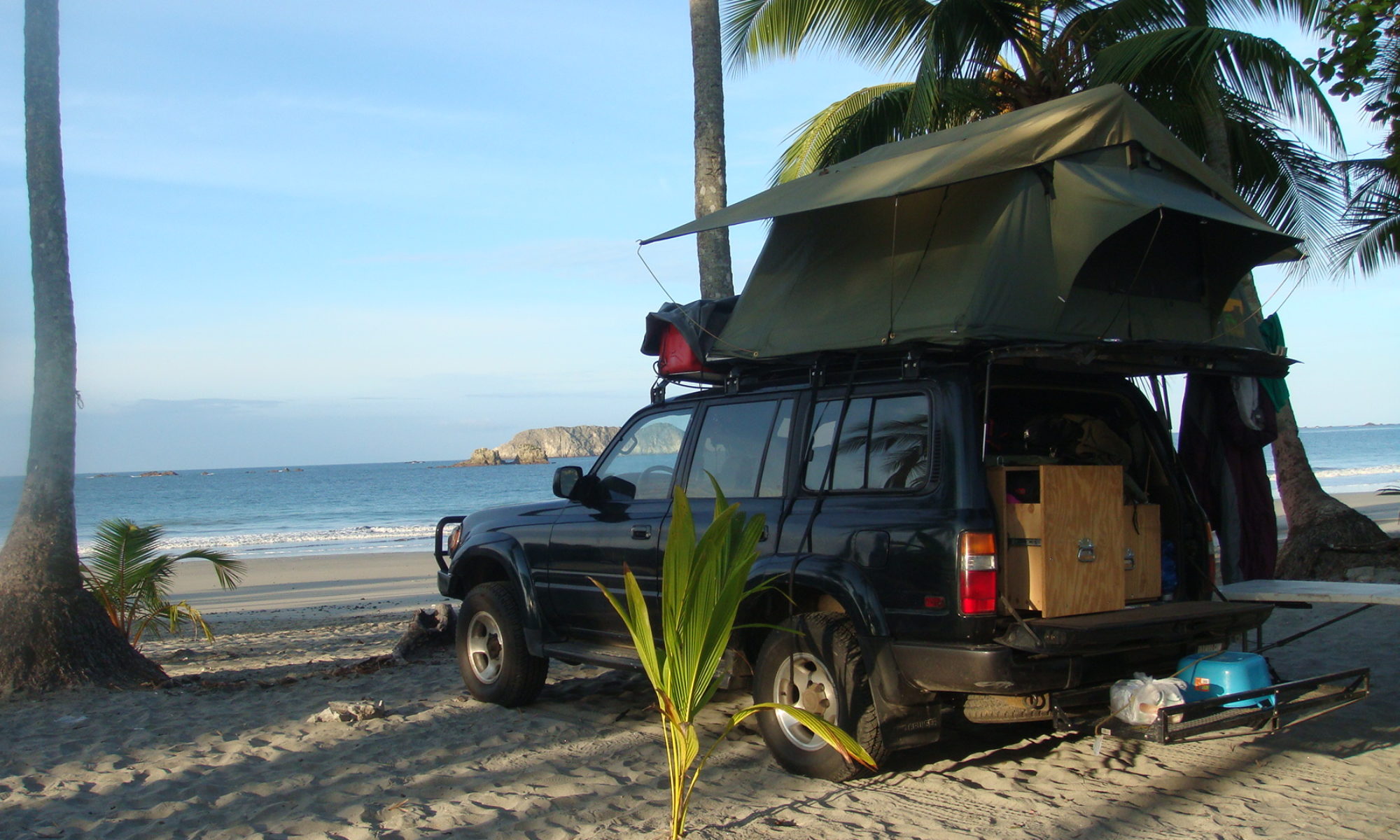
Nicolas – I’ve been following since you arrived in S Africa and have since gone back and read earlier entries. I’m really enjoying the photos. What type of camera are you using on this journey? Great blog and best of luck! I am looking forward to future posts.
Dan
If you need anything for the car you should be able to take care of it in Dar. I was in TZ back in 2002 (and to Mbeya) and our field vehicles were Land Cruisers. TZ is very cheap, $50 for a visa is standard and your overall expenses so far are quite cheap and will continue to be so.
I would never expect to see such lakes and mountains. Your account of the $50 visa is great! I so enjoy going along with you.
Nick: Your photos and captions are truly marvelous. Thanks for keeping us in mind and blogging every chance you have to provide an update. What a wonderful way to experience Africa. I know what you mean about people wanting to exchange addresses and I also discovered that most are more than eager to pose for a picture. But, about the addresses, I have yet to receive an email message from someone I met on the road, no matter how serious they seem at the time. Interesting? Well, good travels and thanks for the update as they are so appreciated. You are wonderful!
-JoyMaria
Wow , Nic, patience is a virtue – 3 reasons to go slow: 1) no speed fine 2) no accidents and 3) saving gas.
The pic of the blue bus on its side is pretty hectic – only when I enlarged it did I notice the human resting on top. And the make-shift wardrobe on the side of the road is classic!
Great blogging – doe so voort!
Hi Nick. Looks like all is going well with your travels. I’ve noticed that exchange rates are sometimes a mystery, so I thought I would provide you with some information that could help a little bit while you are in Africa. Here are some published exchange rates. Although, I understand that sometimes the exchange rate could go by “local rules”!
Kenya: 76.3/USD
Ethiopia: 13.3/USD
Sudan: 2.19/USD
Safe travels!
Nick> me parese Increible Asido Un Drean Para Me Podeerlo Aser…
Espero Continues En Tu Viaje Al Mundo….
Aaron C,
Do you ever sing to help you deal with being alone? I know there aren’t any radio stations out there! I admire your courage in the face of challenges. You are a courageous traveller! Stay with it. I’m enjoying your entries so much.
Enjoying the tales of your travels very much! Currency exchange site pegs 200,000 Tanzanian Shillings at US$131. Not cheap.
Nick ,just want to thank you for all your efforts in sharing your experiences. I have followed your adventure from the beginning and check your blog everyday for new entries! You are undoubtedly a brave sole! I am so grateful that you are giving us the chance to experience your trip with you through this blog. Stay safe!
Heya Nick,
The car is finished. We are on a short holiday in the Netherlands [3weeks] after that we head into Brazil… All the best.. And, I don’t know if you already know this. This website holds recent fuel price info: http://gasoline-germany.com/international.phtml
although in Euro’s
Adventurous greetings,
Coen
Hi Nick, good to read your blog, it must be hard work not only travelling but having to write about it as well!
What an adventure, good luck with the rest, I will keep avidly reading. We have your blog linked on our website and it’s generating a few hits so hopefully more people will be following you.
Hope the Mallett’s Maple Pepper is adding some taste to your food! A picture of it in a remote place would be much appreciated 🙂
All the best,
James Mallett
Been in lake Tahoe for family uniom and hanging out with good buudyies — did keep up on your last 3 blogs since goon a week. my buddy lantz http://www.myspace.com/lantzlazwell filmed one of his show in sac cali.
Wow , Nic, patience is a virtue – 3 reasons to go slow: 1) no speed fine 2) no accidents and 3) saving gas.
The pic of the blue bus on its side is pretty hectic – only when I enlarged it did I notice the human resting on top. And the make-shift wardrobe on the side of the road is classic!
Great blogging – doe so voort!
Hi Nicholas,
Wow, Africa, your pictures are beautiful. I’ve been following you since the beginning but got waylayed in Honduras, so have a lot of twitter to catch up on. You’re quite a survivor!! Back here in the states, the main topic is the terrible oil spill by BP. Quite a lot of dead sea life, birds and people losing their jobs. It’s very sad. Take care and watch what you eat in African. My prayers are with you, Summer
Hi Nicolas, I’ve been following since before you actually headed out. I look forward to your updates, enjoying them very much, along with the pictures. The facts that you include are so interesting. You are a brave man, I pray for your safety and that your Land Cruiser doesn’t let you down in some desolate area, especially since you are traveling alone now. Continue to enjoy yourself and I look forward to watching the “documentary” (??) .